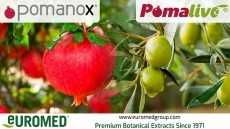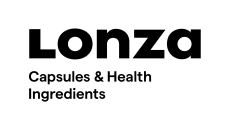Cyanotech's Bioastin obtains structure/function claims
structure/function claims for its Bioastin following FDA review, as
it looks to make consumers more familiar with the benefits of
astaxanthin.
In addition, the company is applying for several more structure/function claims and has filed a formal petition in the European Union (EU) for six claims. The claims focus on joint health, skin health, protection from UV damage, eye heath and immunity. Structure/function claims differ from qualified health claims in that they do not require pre-approval from the FDA (US Food & Drug Administration) and refer more generally to functions in the body as opposed to specific health conditions. They are not as coveted by supplement manufacturers as qualified health claims, but still can contribute to the scientific and marketing clout of an ingredient. "Astaxanthin is still in a nascent stage, and this will help bring its benefits forefront into the consumer's eye," Bob Capelli, Cyanotech vice president sales & marketing, told NutraIngredients-USA. Astaxanthin is produced by the haematacoccus pluvialis algae when water supplies in its habitat dry up to protect itself against the effects of UV radiation. This microalgae is part of the diet of fish or crustaceans, such as salmon and shrimps, and is responsible for the pink colour in their flesh. Cyanotech claims Bioastin is the world's best selling brand of astaxanthin for humans, and grows the microalgae from which it derives the ingredient in shallow ponds at its 90-acre facility along Hawaii's coastline. The company holds three usage patents for Bioastin. These are for carpal tunnel syndrome, cold and canker sores, and as an internal and topical sunblock. With some co-branding agreements already in place, Cyanotech has been stepping up marketing for its ingredient this year and the new structure/function claims will help to bolster this effort. "Cyanotech is pursuing numerous avenues to increase public awareness of Bioastin natural astaxanthin with our extensive investment in PR and advertising, as well as initiatives like this one," said Capelli. Following Cyanotech's submissions to FDA, the current structure/function claims for its astaxanthin are: supports joint health, supports healthy immune function, supports healthy tendons, supports a healthy carpal tunnel, supports joint function after heavy exercise, and supports skin structure during sun exposure. "These claims, when allowed, are a fantastic way to help our customers market BioAstin," said Capelli. "When they can refer on their labels and in their marketing literature to BioAstin's benefits through the use of these claims, they can educate the consumer as to the functional effectiveness of this wonderful product." The company's path into the area of EU health claims will be much longer due to the fact it is an even lengthier process than what it had to go through in the US. "A dossier has to be submitted which takes some time to put together with scientific references, etc, then it's just a matter of waiting for 60 days to make sure that the FDA has no objections," Capelli said of the process Cyanotech had to go through in the US. "For the EU claims, it will take much longer, up until 2010." One of the attributes Cyanotech pushes forward for its microalgae ingredients is that they are all natural and free of pesticides, herbicides, and genetically modified organisms. Cyanotech also manufactures Hawaiian spirulina pacifica for dietary supplements and Naturose astaxanthin, primarily for aquaculture.










